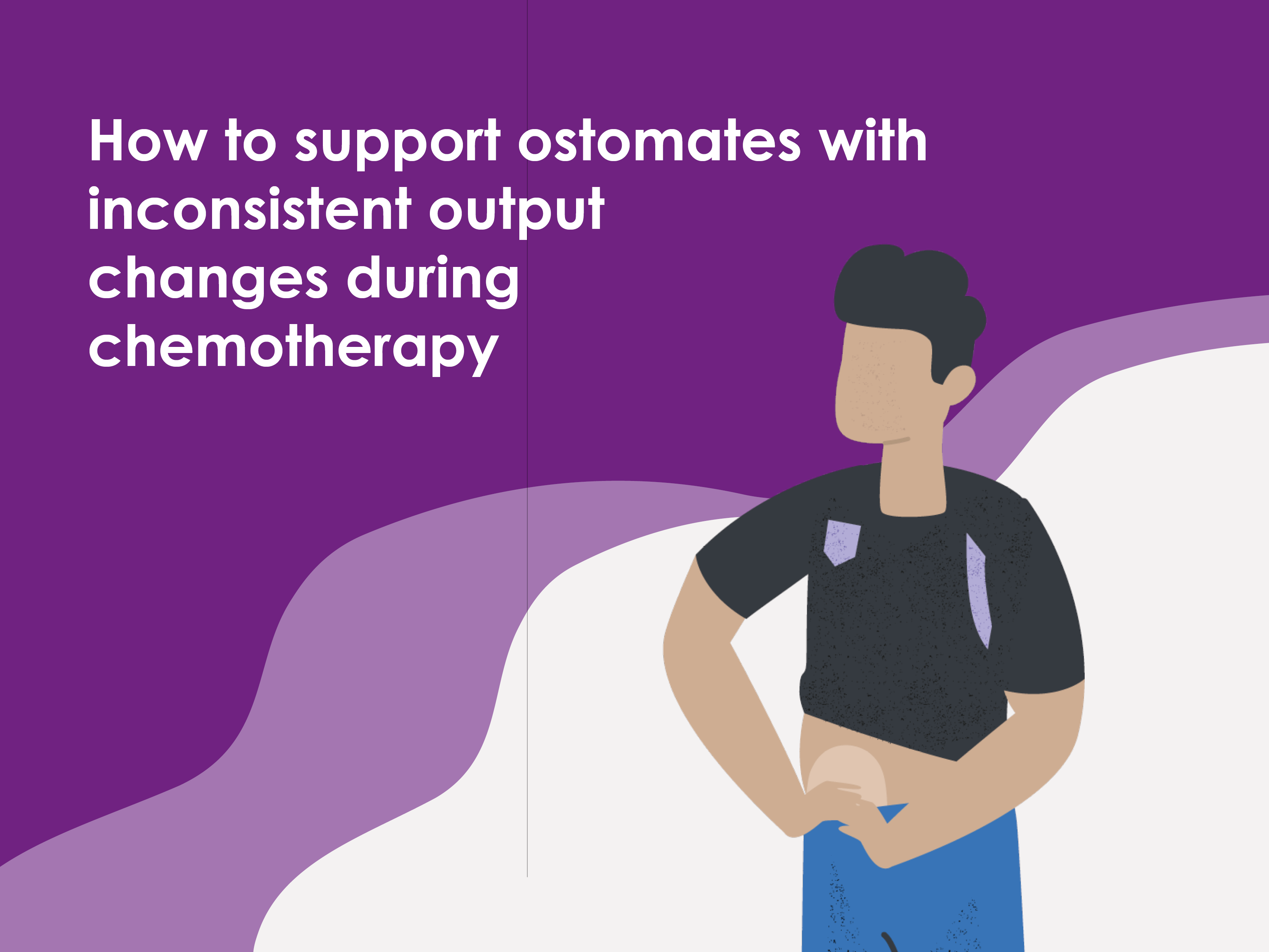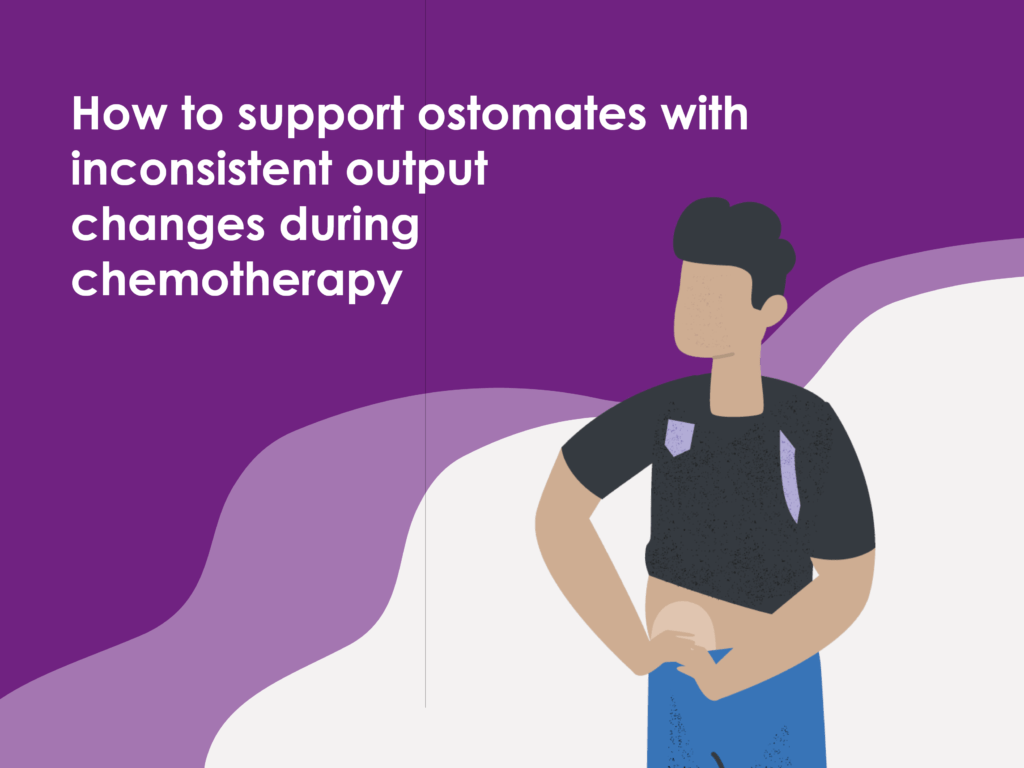 US
US


How to support ostomates with inconsistent output changes during chemotherapy


Gastrointestinal side-effects, such as chemotherapy-induced diarrhoea and constipation, impact approximately 80%1 of people and may persist many years after treatment, significantly reducing quality of life.
Many ostomates describe intermittent episodes of profuse diarrhoea and/or purging. In addition, output can be more corrosive due to the change in consistency and increase in volume. Diarrhoea caused by chemotherapy is a serious and potentially life-threatening complication of a wide variety of chemotherapy drugs, and hospital admission is frequently needed for adequate supportive care.
Chemotherapy may also cause constipation. Certain medications (such as pain relief), changes in diet, dehydration, and being less active may be contributing factors to constipation for colostomates.
In order to manage output changes there are some tips to give ostomates. Following are some suggestions for consideration.
Monitor their output:
Suggest a stool diary to keep track of the amount (number of times emptying/changing per day) and consistency of output compared to regular routine. Encourage patient to watch out for signs of dehydration and re-iterate the importance of alerting their care team in an attempt to prevent acute dehydration.

Medications:
Discuss appropriate use of anti-diarrhoeal medication during episodes of high output.
Dietary modifications:
Reduce amount of fibre intake, caffeine, and alcohol consumption during episodes of chemotherapy-induced diarrhoea.
Peristomal skin care:
Consider additional peristomal skin protection. Introducing appropriate accessories eg absorbent seals may help to mitigate moisture associated skin damage particularly during times of increased output.
Assess and adjust the pouching system:
Consider pouches with higher capacity during episodes of purging and/or diarrhoea. Ostomates using closed pouching systems may need to transition to drainable pouches during chemotherapy cycles.
It’s important to note that not all chemotherapy treatments will have the same impact on stoma output, and the effects can vary depending on the specific drugs used, the dosage, and the individual’s medical history. An individualistic approach is needed when guiding ostomates through chemotherapy but highlighting in advance potential changes and what to consider may help the individual recognise signs early and seek help.
 References
References
-
- McQuade RM, Stojanovska V, Abalo R, Bornstein JC and Nurgali K (2016) Chemotherapy-Induced Constipation and Diarrhea: Pathophysiology, Current and Emerging Treatments. Front. Pharmacol. 7:414. doi: 10.3389/fphar.2016.00414
- Rothenberg ML, Meropol NJ, Poplin EA, Van Cutsem E, Wadler S. Mortality associated with irinotecan plus bolus fluorouracil/leucovorin: summary findings of an independent panel. J Clin Oncol. 2001 Sep 15;19(18):3801-7. doi: 10.1200/JCO.2001.19.18.3801. PMID: 11559717.
- Stein A, Voigt W, and Jordan K, (2010) Chemotherapy-induced diarrhea: pathophysiology, frequency and guideline-based management. Thera- peutic Advances in Medical Oncology 2(1) 51 63 DOI: 10.1177/1758834009355164
- Benson 3rd, A.B., Ajani, J.A., Catalano, R.B., Engelking, C., Kornblau, S.M., Martenson Jr, J.A. et al. (2004) Recommended guidelines for the treatment of cancer treatment-induced diarrhea. J Clin Oncol 22: 2918 2926.
